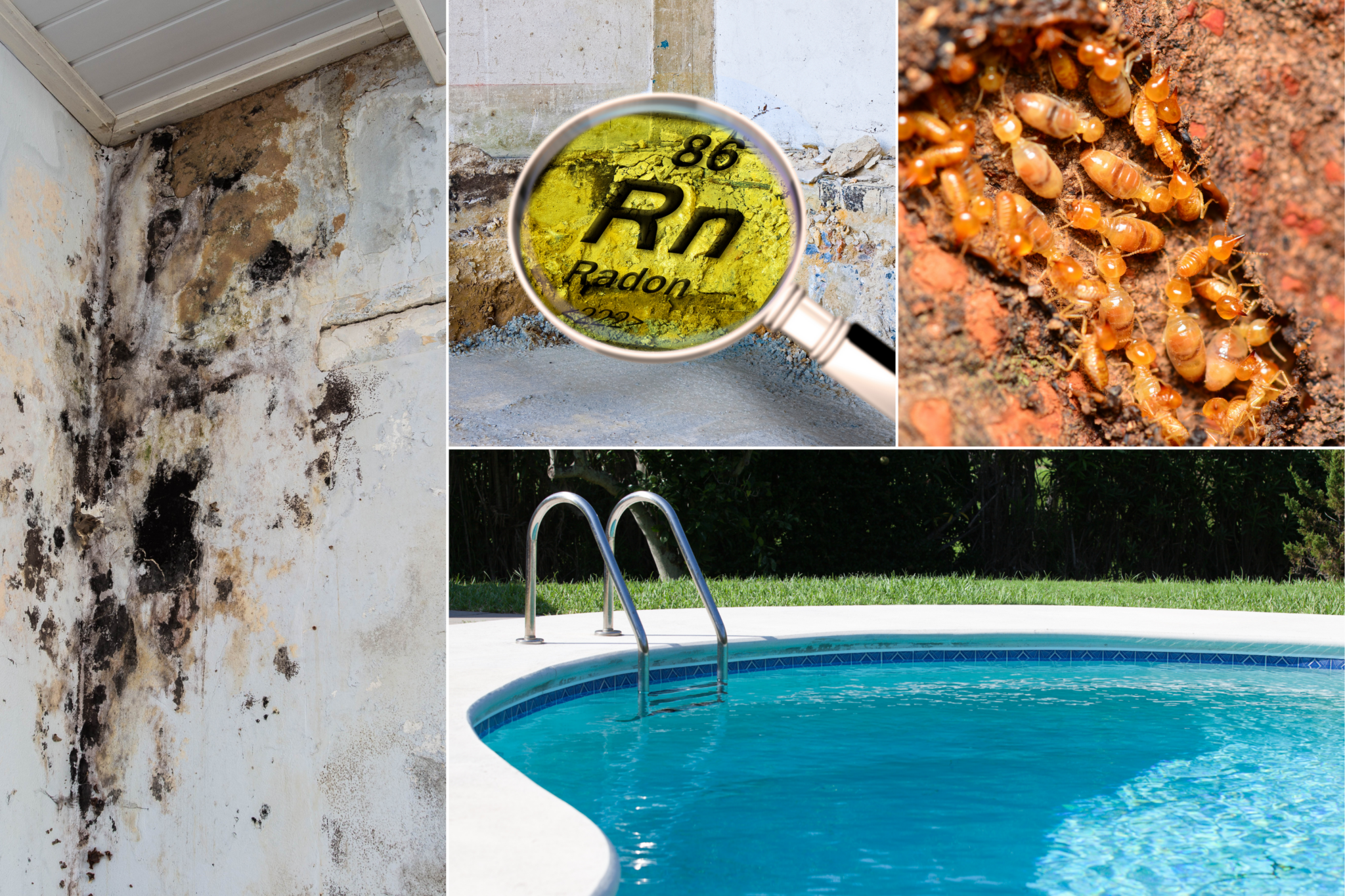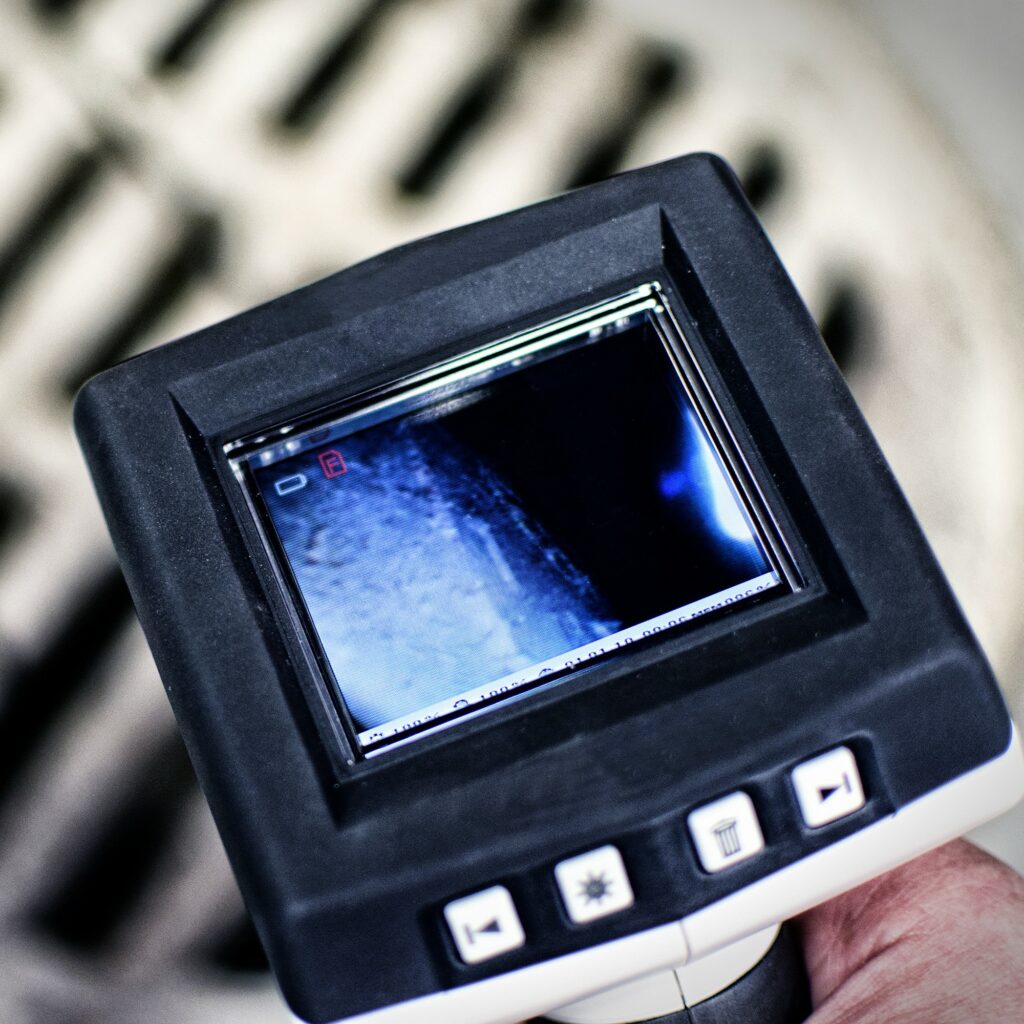

The standard home inspection is every inspector’s meat and potatoes: fulfilling, adherent to the standards of practice (SOP), and an educational resource for prospective buyers and sellers.
Still, it doesn’t cover everything a client could need. To distinguish yourself from competing home inspectors and boost your income, you might decide to offer extra home inspection services. We call them ancillary inspection services, and they’re popular add-ons to a standard home inspection. It’s easy to see why; if you’re already there, why not provide a more informative report and make some extra money?
There is one circumstance that raises eyebrows and questions: What do these ancillary inspection services mean when they aren’t included with a standard home inspection? What if a homeowner needs a radon test or wind mitigation inspection months or even years after buying the house? If you’re hired to perform a standalone specialty inspection service, how should you prepare your ancillary pre-inspection agreement differently? How does it affect your insurance coverage needs?
We address these questions below.


We define ancillary services as business solutions you provide that fall outside the scope of a standard home inspection. Inspectors typically tack one or more of these additional home inspection services onto their contracts with clients, sometimes for an extra fee. Some examples include:
In recent years, however, we’re seeing more home inspectors offer these specialty inspection services not as add-ons, but as their own, standalone services.
Business owners like Emmanuel “Manny” Stratakis of Summit Property Inspectors in New York see lots of benefits. If you’re looking to grow your business, ancillaries can distinguish you from the competition. Plus, they allow you to provide more value and convenience to clients who don’t need a typical home inspection, Stratakis explained.
“We [offer standalone ancillary inspection services] for additional revenue for the company and also to make it easier for clients,” he said. “Once we’ve touched them once with a home inspection and they know that we provide these ancillary services, it’s just so much easier for them to give us a call back. … You’ve already built that trusted relationship with them.”
If you choose to offer any standalone, specialized home inspection services, you’ll need to consider a few factors: your business’ bandwidth, startup costs, and your regional market trends.
First, you need to consider your time and capacity. You don’t want to stretch yourself too thin, especially if you’re a single-inspector team. After all, more standalone services means more locations to visit and more reports to write. Overloading your plate is mentally and physically taxing, which, in turn, increases your risk of burnout and errors down the road.
In addition to the cost of time, offering new ancillary inspection services will introduce financial costs. Some of these may include:
The good news is, once you get going with a standalone ancillary, it doesn’t take long to earn those startup costs back, Stratakis explained.
“The break-even point is pretty quick. I mean, you do have some training and some licensing in the state that I’m in. But you make your money back pretty quickly,” he said. “Our mold services run, depending on the building and how many samples we take, on average about $300 a service. And we probably do maybe 20 of those a year, 20 to 25 a year as additional standalones. So it’s $2,000 or $3,000 [per year].”
And luckily, if you’re already offering services like mold and radon testing as part of a standard home inspection, then you’ll already have the costs of tools and licensing covered. In that case, the only new expense is the extra gas mileage. Even then, many home inspectors offset those expenses by limiting their inspection zone and adding a mileage fee for appointments outside that zone. You could even include those fuel costs in your standard fee. We share more tips to creating fair and competitive pricing strategies here.
Lastly, clients in your area will demand some ancillary inspection services more than others.
That’s why it’s always important to research local demand and gauge their success before introducing new specialty inspection services. For example, if you live in a radon red zone, like Iowa, you’ll see more interest in radon inspections than you would in lower risk states, like Florida. Real estate agents can be a good resource for determining trends in your neighborhood, too.
By performing an ancillary service, you’re going beyond your state and association SOP to provide a more thorough evaluation of a component or system in the home. This exposes you to more risk. To limit your liability while performing standalone ancillaries, we suggest the following steps.
Because ancillary services exceed the parameters of most SOPs, many insurance policies don’t automatically cover them.
To go above and beyond a typical inspection, you must also go above with your coverage and match the extra risk you’re taking on.
Here’s where endorsements come in handy. Endorsements add specialized home inspection services like mold, radon, sewer scope, and water quality testing to your insurance coverage.
Before you decide to offer any ancillary inspection service, standalone or otherwise, always call your insurance provider to verify you have the right endorsement. Insurers like us at InspectorPro have a live, in-house team available to answer your questions and get you the coverage you need. We can even bundle together several ancillaries for a lower price than you’d pay buying them individually.
You probably know that some states require home inspectors to carry insurance. As of January 2023, 31 states expect errors and omissions (E&O) insurance and 38 expect general liability (GL) insurance. You’re probably aware of the licensing and specialized training requirements for services like termite inspections, too. But did you also know that some states have insurance requirements specific to ancillary services?
While you’re preparing to offer standalone inspections for homes with pools, mold, radon, or air quality concerns, investigate your state’s regulations. You can also ask your insurance broker for help. If you want to perform mold testing in Florida, for example, you’ll need $1,000,000 in E&O limits. For sewer scope inspections in Illinois, you’ll need an insurance policy as well as a bond.
What exactly is a bond? We break down the differences between bonds and insurance in our guide.
Your pre-inspection agreement is your first line of defense against claims. A written contract between you and your home inspection clients, your pre-inspection agreement records the services and responsibilities you’re adopting as the inspector and the limitations and costs your clients accept by signing the contract. It protects you and your clients by setting clear expectations for both parties.
For a standard home inspection, your agreement should state the purpose or scope of your services and outline the SOP to which you adhere. When you’re performing standalone ancillary inspection services, however, your scope is going to look quite different than it would with a home inspection.
Therefore, for every standalone, ancillary service you do, your agreement should accurately reflect the scope of that specific service. Otherwise, you’re leaving clients to assume and misunderstand what is and isn’t included.
We want to help you avoid misunderstandings at all costs, since clients can weaponize them against your defense in court. At the same time, we understand that creating standalone ancillary agreements can be overwhelming. So we did the work for you.
All InspectorPro-insured home inspectors have free access to our contracts for standalone, specialized home inspection services. For many ancillary services, we’ve adapted our agreement to that service’s scope and to your state’s specific provisions, if applicable. Still, we suggest checking any ancillary service requirements in your state to ensure your compliance.
Here are some of the standalone ancillary inspection services InspectorPro’s contracts are designed for:
Curious about one that isn’t on our list? Get in touch with a team member.
In a line of work as specialized as yours, very few people understand what home inspectors do for a living. These misunderstandings not only cause home inspection claims and leave gaps in your defense.
InspectorPro’s founders saw how much the cycle was harming inspectors. They wanted to provide a solution. Today, we’re the nation’s top home inspection insurance provider for a reason. We get you. We’ve studied your claims, case law, and legislation, and we’re passionate about helping you prevent claims.
Toward that end, we reward home inspectors for managing their risk. Just by using our pre-inspection agreements mentioned above, you’re eligible for a $1,000 discount off your deductible.Interested in a home inspection insurer that rewards you for your hard work? Click here to fill out an application and get a no-obligation quote from a member of our team. Whether you’re just getting started or celebrating many years in this industry, welcome! We’re happy to work with you and be your resource throughout your inspection career.
Be honest: How many of us had the same childhood fantasy of pulling a lever…
Welcome to the Inspection Insider. Here, seasoned home inspectors share their technical expertise and experience…
Imagine this: You pull up to your inspection, and the real estate agent is late…
In 2023, a home inspector was hired to perform a luxury, big home inspection at…
Welcome to the Inspection Insider. Here, seasoned home inspectors share their technical expertise and experience…
One inspector was evaluating an HVAC unit and determined it was relatively new, about three…
This website uses cookies.